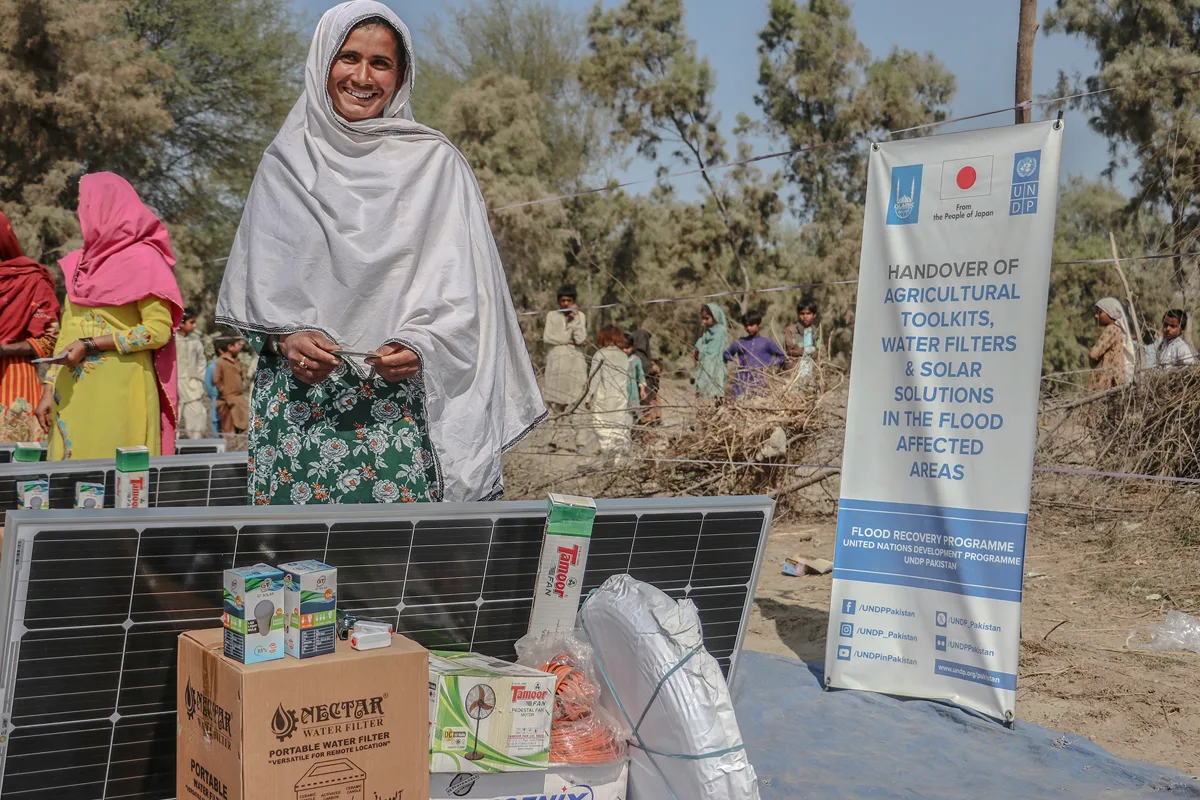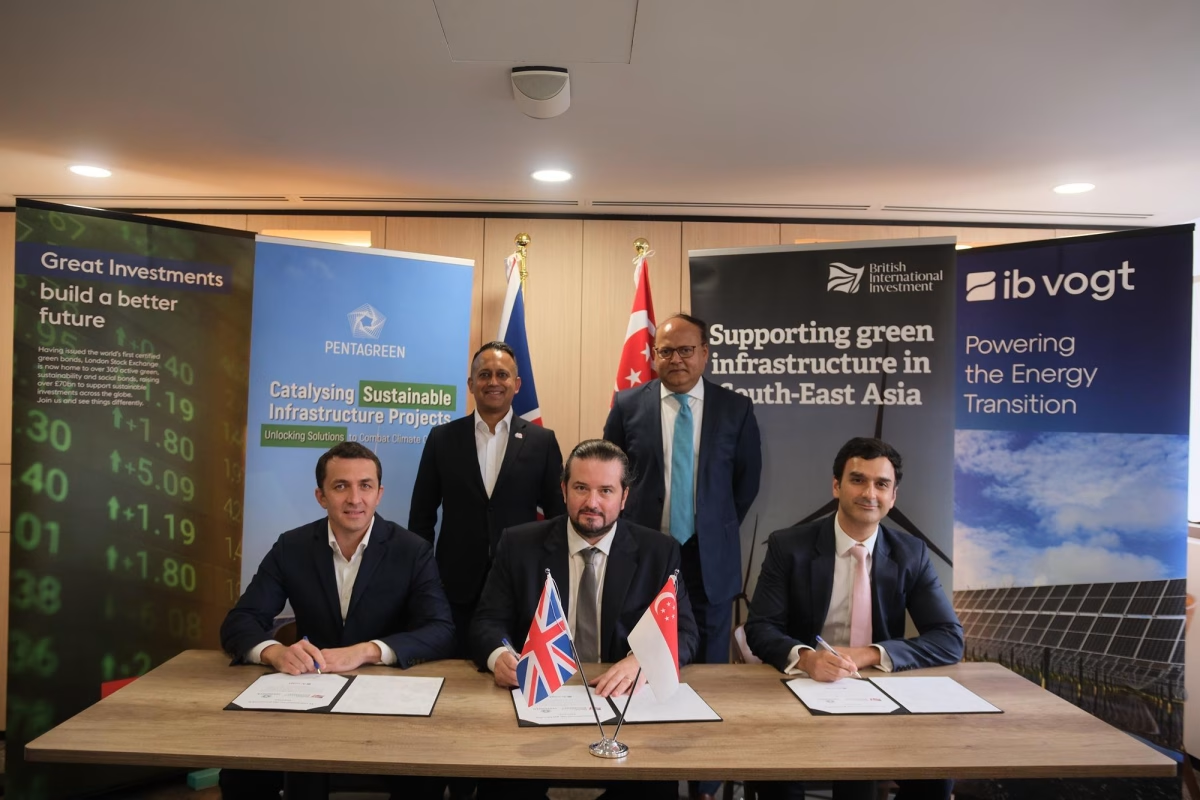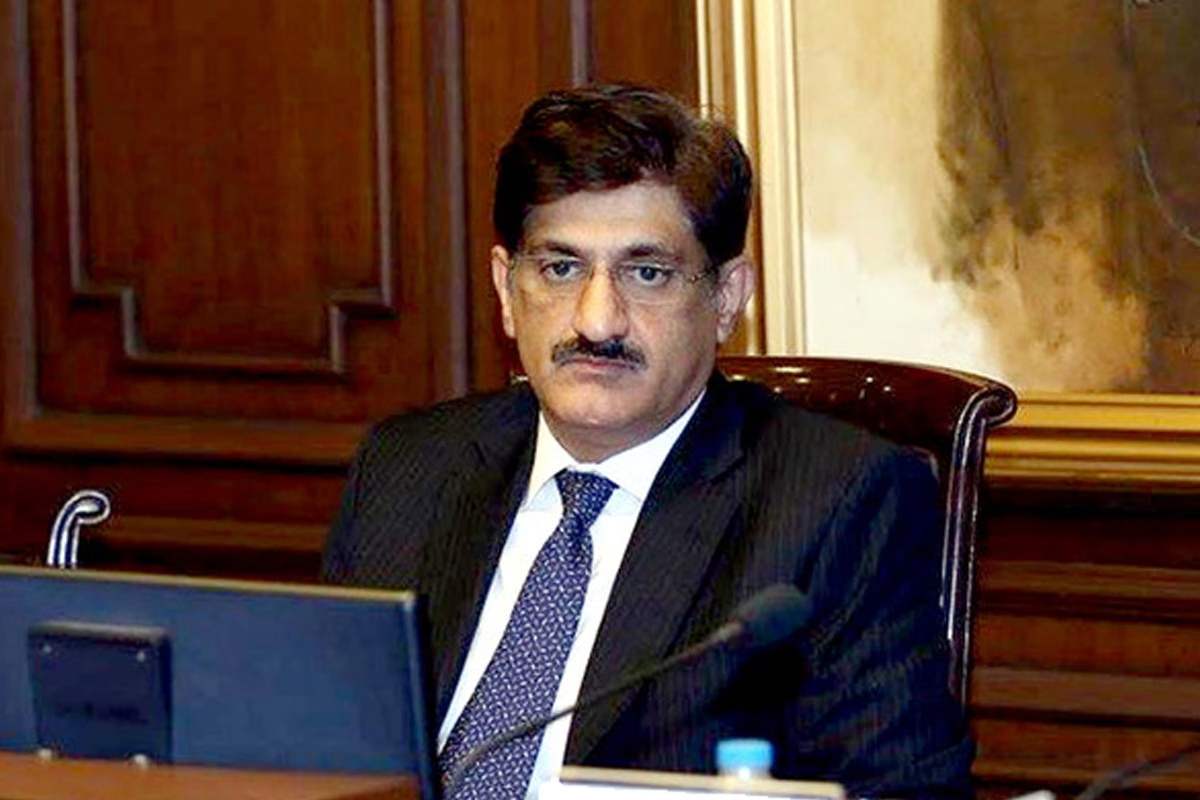
KP to shift 100 schools, 3050 mosques on solar energy
July 24, 2024
KE receives bids for 150MW solar projects in Balochistan
August 7, 2024In response to the devastation caused by the 2022 floods in Sindh, Balochistan, and Khyber Pakhtunkhwa, the UNDP, supported by development partners, has been working to catalyze recovery in the affected regions.
Pakistan’s energy sector is heavily reliant on fossil fuels, with approximately 63 percent of energy generated from these sources during FY 2022-23. This reliance makes the country particularly vulnerable to the adverse impacts of climate change, including extreme weather events, fluctuating temperatures, and shifts in precipitation patterns, which disrupt traditional energy supply chains. These disruptions lead to supply issues, price fluctuations, and increased operational costs, impacting not only the power sector but the entire economy. To address these challenges and align with global climate objectives, transitioning towards a low-carbon and climate-resilient power sector is crucial.
Pakistan’s heavy dependence on fossil fuels, notably coal and natural gas, has resulted in a substantial carbon footprint. To reduce the power sector’s vulnerability, it is essential to transition to a diverse array of resilient energy sources, including renewable energy and distributed generation. This shift is pivotal for curbing greenhouse gas emissions and adhering to international obligations like the Paris Agreement. Embracing renewable energy reduces reliance on fossil fuels, thereby decreasing susceptibility to supply disruptions and price fluctuations, and bolstering energy security. Additionally, distributed generation enhances local resilience and minimizes transmission losses.
The 2022 floods inflicted significant damage on Pakistan’s power sector, impacting both the generation and distribution capacities of the country’s power infrastructure. The Post-Disaster Needs Assessment, supported by the UN, EU, and Asian Development Bank, and facilitated by the UNDP and the World Bank, estimated the damages at PKR 17.4 billion (USD 81 million). However, the human impact is greatly magnified due to the critical need for clean and accessible energy, especially in the aftermath of major disasters.
These energy sector damages highlight the absence of institutional mechanisms and arrangements for effective risk management and climate resilience to reduce vulnerabilities to natural disasters and climate change. Through its flagship Flood Recovery Programme, following the 2022 floods, the UNDP has intensified efforts to integrate renewable energy into the recovery process through various initiatives.
In Pakistan, women constitute a significant portion of energy users and beneficiaries, both in domestic and productive activities. They are disproportionately affected by the lack of clean and accessible energy, particularly in rural areas. In response to the devastation caused by floods, the UNDP, with support from development partners including the Government of Japan, delivered a comprehensive assistance package aimed at catalyzing recovery in the affected regions. Alongside community restoration, livelihoods recovery, and health and hygiene interventions, the UNDP distributed household-level solar solutions to 2,200 affected households, providing them with access to uninterrupted renewable energy.
The kit, comprising a solar panel, battery, fan, and bulbs, delivers lighting and cooling to affected households, many of which are not connected to the national electricity grid. This provision of cooling and lighting is essential for the well-being and productivity of the affected households. The UNDP’s Flood Recovery Programme has integrated renewable energy into the recovery process through various initiatives, including the inclusion of household solar kits as part of the support provided to flood-affected individuals. The UNDP is also exploring the possibility of providing solar solutions as part of its reconstruction and rehabilitation efforts, which may encompass residences, schools, healthcare facilities, or government offices.
These measures aimed at transitioning to renewable energy can serve as a model for promoting environmental sustainability in the recovery and reconstruction process and ensuring long-term viability in Pakistan’s energy sector.




